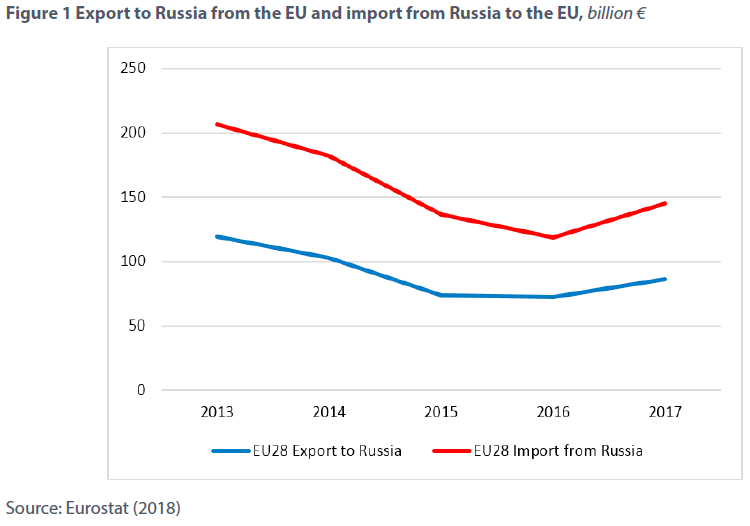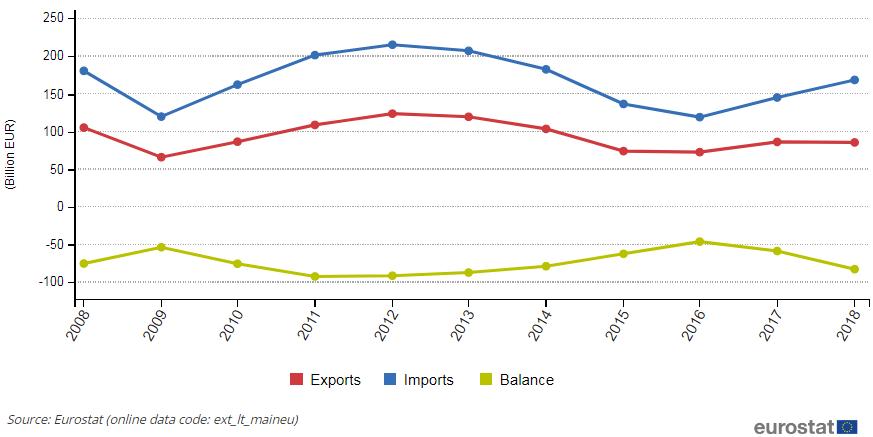The European Commission estimated the cost of sanctions [imposed on Russia] for the EU to €40bn (0.3 per cent of the EU GDP) in 2014 and €50bn (0.4 per cent of EU GDP) in 2015. In addition, it was anticipated that the Russian food ban would cost the EU €5bn (DG EPPD 2017, p. 11). [...]
It is between 2013 and 2016 that the major fall in EU’s export to Russia took place and it fell by 39.4 per cent or €47 billion. After 2016 export started to recover and the accumulative result 2013-2017 is a total fall in export to Russia of 16.6 per cent, or €17 billion. Thus just in one year 2016-2017, the EU recovered €30bn of its previous export losses (Eurostat 2018).
The source isn't really providing much insight why this rebound took place. As far as I know sanctions weren't dropped...
Throughout 2017 and 2018, the EU extended sanctions every six months against Russia, adding six entities involved in the construction of the bridge over the Kerch Strait between Russia and the Crimean Peninsula
So what explains the large rebound?
A German article assigned some of the rebound to the 2018 World Cup preparations, but it seems a little simplistic. The article from which I quoted the bit on sanction extension/maintenance does mentions some Italy-Russia deals on energy (Enel-Rosseti) being signed in this period, but it's unclear to me if these had any trade effect during 2017.
Minor update: there's now data available for 2018 as well:

